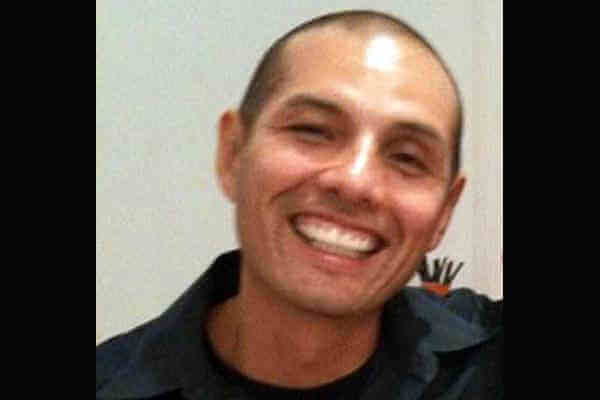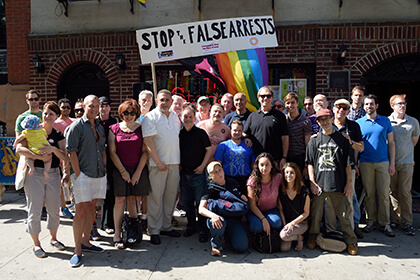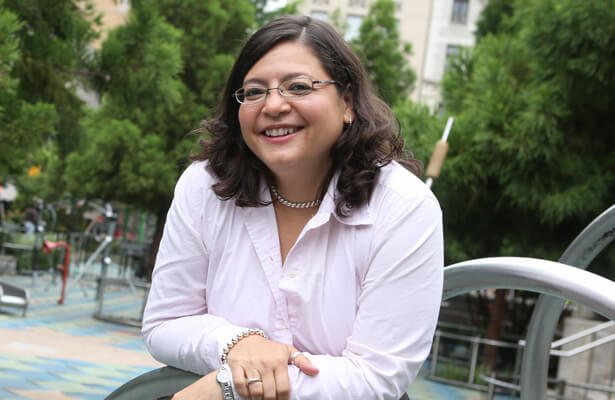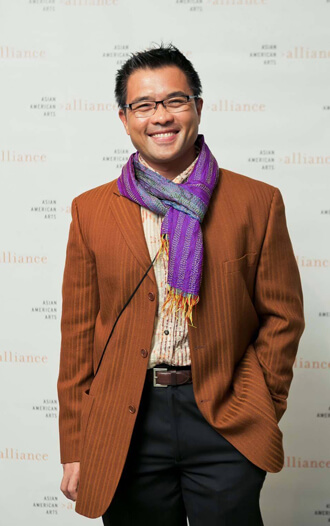A New Jersey man who was found guilty of second-degree manslaughter in the 2009 strangulation death of a 39-year-old gay man in the East Village was released from prison after a state appeals court found that the judge in the case violated the defendant’s constitutional rights during jury selection.
“On the merits, we believe that a reversal is warranted,” a five-judge panel wrote last year about the trial of Davawn Robinson who was convicted in 2012 in the death of Edgard Mercado. “The rules for selecting a jury are set forth in the Criminal Procedure Law. After questioning of the jurors is complete, each party, starting with the People, may challenge the jurors for cause. After both parties have been given the opportunity to make cause challenges, the court must allow them to peremptorily challenge any remaining prospective juror.”
The judges found that when Bruce Allen, the judge in the Robinson case, permitted prosecutors to go out of order with a peremptory challenge, or a challenge that does not need a reason, on one juror, he violated Robinson’s rights.
“‘The right of peremptory challenge given to an accused person is a substantial right,’ and the order in which peremptory challenges are made ‘is matter of substance’ ‘intended for the benefit of the defendant,’” the judges wrote citing two earlier cases. “The statute governing the order for peremptory challenges is not a ‘mere rule of procedure,’ but is ‘a right secured to the defendant.’ The requirement that the People make peremptory challenges first ‘is imperative,’ and violation of that rule is ‘a substantial, and not a mere technical error.’”
Robinson, now 32, was originally charged with one count of second-degree murder in the killing. He and Mercado met at a West Village gay bar in September 2009. They traveled by cab to Mercado’s East Village apartment and also purchased cocaine that Mercado paid for with cash that he withdrew from his checking account. Once at the apartment, prosecutors said that the likely scenario was that Mercado caught Robinson stealing his money and Robinson then strangled him to death. Robinson left the apartment with Mercado’s computer and cell phone.
“The cash didn’t get up and walk out of his wallet on its own,” Leila Kermani, one of two assistant district attorneys who tried the case, said during closing statements in Manhattan Supreme Court in 2012. “The evidence strongly suggests that Edgard caught the defendant stealing… He was caught and that’s when he formed the intent to kill.”
Arrested at his New Jersey home two days later, Robinson first told police that he had acted in self-defense. In the moments after the killing, he called 911 and spent 22 minutes telling a 911 operator that he had acted in self-defense. He gave a long video statement to police and an assistant district attorney after his arrest in which he said he acted in self-defense.
During the trial, Robinson’s story changed when he took the stand. He testified that Mercado’s death came during rough sex after the older man asked him to choke him. Robinson choked Mercado with a belt that was part of a uniform that the older man wore in a Brazilian dance class. Police found nothing in Mercado’s apartment that indicated he enjoyed sado-masochism or asphyxiation during sex.
Robinson’s affect in the video statement and on the stand was the same. He wept and was visibly upset. The physical evidence as described by pathologists from the city’s medical examiner’s office did not support his story, with two pathologists saying that his injuries were not consistent with consensual sex. The defense asserted that Robinson was following Mercado’s lead during asphyxiation.
“Davawn was a bondage virgin,” Stephanie Kaplan, one of the Legal Aid Society attorneys who represented Robinson said during her closing statement. “He didn’t know what to do… In fairness, there was a reliance on Edgard.”
Robinson’s first trial in 2011 ended in a mistrial with jurors being unable to decide among a second-degree murder charge, a second-degree manslaughter charge, and a criminally negligent homicide charge. Jurors in the 2012 trial appear to have compromised and essentially split the difference. He was sentenced to four to 15 years in prison and he was eligible for parole after four years. Gay City News has checked the state corrections department database from time to time to review his status and found that he was no longer listed in that database on a recent review.
After his conviction was overturned, he was remanded for retrial. In January of this year, in a deal with the Manhattan district attorney’s office, he pleaded guilty to second-degree manslaughter. He received an unconditional discharge, which means he was freed without parole supervision, but he has a criminal record. Robinson was remanded in 2009, so he served roughly 10 years for the Mercado killing.



































